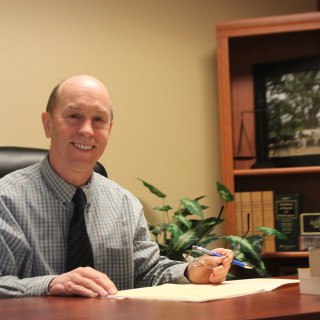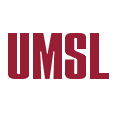
J. David Krekeler
Krekeler Law, S.C.J. David Krekeler is the founder of Krekeler Law, S.C. in Madison, Wisconsin, a firm dedicated to solving financial problems. His practice includes representation of debtors, creditors, and bankruptcy trustees in cases under Chapters 7, 11, 12, and 13 of the Bankruptcy Code. He also serves as a receiver in both supplemental and Chapter 128 proceedings. He is a member of both the Bankruptcy, Insolvency and Creditor’s Rights section (BICR) of the Wisconsin State Bar, as well as the Western District Bankruptcy Bar. He is also a member of the American Bankruptcy Institute and the National Association of Consumer Bankruptcy Attorneys. He has been certified as a Business Bankruptcy Law Specialist by the American Board of Certification. Only six Wisconsin lawyers are certified as business bankruptcy specialists, and David has been one of them for many years. He is a past chair of the (BICR) section of the Wisconsin State Bar, as well as the Western District Bankruptcy Bar Association. He is also past chair of the Solo and Small Firm section, and the 2021 recipient of its John Lederer distinguished service award. David is a graduate of the UW-Madison Law School and has a degree in Business Administration from the University of Missouri-St. Louis. He frequently teaches on debtor-creditor matters. He has been selected as a Super Lawyer every year for the last 17 years, as well as being included in the Best Lawyers of America during those same years. He recently published his first book, “Bankruptcy, Asked and Answered” (available on Amazon). His second book, this one on law office management, should be out within the next few months. When not solving financial problems, you will find David on dinner dates with his wife, Mary, and enjoying time with his children and grandchildren. Sunday night dinners are a ritual.
- Bankruptcy
- Chapter 11 Bankruptcy, Chapter 13 Bankruptcy, Chapter 7 Bankruptcy, Debt Relief
- Collections
- Consumer Law
- Class Action, Lemon Law
-
Free Consultation
Please fill out the inquiry form at www.ks-lawfirm.com. After we receive your information, a free assessment call evaluates potential next steps. -
Credit Cards Accepted
Accept Visa, Mastercard, American Express and Discover
- Wisconsin
-

- English: Spoken, Written
- Past Chairman
- Wisconsin District Bankruptcy Bar
- Current
- Past Chair and Committee Member
- Solo & Small Firm Conference, WI State Bar
- Current
- Member
- National Association of Consumer Bankruptcy Attorneys
- Current
- Speaker at training events
- Legal Action of Wisconsin Volunteer Lawyer Project
- Current
- Past Member
- Commercial Law League of America and National Association of Retail Collection Attorneys
- Current
- Past Instructor
- University of Wisconsin Law School Lawyering Skills Program
- Current
- Mediator Trainer
- Department of Agriculture, Trade, and Consumer Protection: Farm Mediation Program
- Current
- Member
- Department of Agriculture, Trade, and Consumer Protection: Consumer Protection Advisory Council
- Current
- Board of Directors
- Bankruptcy, Insolvency and Creditor's Rights Section, WI State Bar
- - Current
- University of Wisconsin - Madison
- J.D.
-

- University of Missouri - St. Louis
- B.S. | Business Administration
- -
-

- John Lederer Distinguished Service Award
- State Bar of Wisconsin Solo, Small Firm, & General Practice Section
- Fellows
- State Bar of Wisconsin
- The Fellows of the Wisconsin Law Foundation is an honorary program, which recognizes members of the profession in Wisconsin who are known by their peers for high achievements in their profession and outstanding contributions for the advancement and improvement of the administration of justice in the State of Wisconsin.
- Recipient
- America's Most Honored Professionals
- Best Lawyers in America 2007-Present
- Best Lawyers in America
- Wisconsin Super Lawyer in Bankruptcy 2007-Present
- Super Lawyers
- Wisconsin State Bar # 1011125
- Member
- Current
-

- Recent Decision Gives New Guidance on Harvester's Liens
- AGRICULTURAL LAW AND RURAL PRACTICE BLOG
- Agricultural Clients: Help them Get Paid
- State Bar of Wisconsin Rural Ag Blog
- Wisconsin Leads Nation in Farm Bankruptcies
- State Bar of Wisconsin Rural Ag Blog
- A Business, a Way of Life: Representing Family Farms with Financial Problems
- State Bar of Wisconsin Rural Ag Blog
- The Impacts of Insolvency and Bankruptcy on Family Court Commissioner Decisions
- All Businesses Fail
- Tax Planning for Bankruptcy
- Six Degrees of Separation: How Bankruptcy Connects with Rural Practices
- The Nuts & Bolts of Bankruptcy and Effects on Collections
- Board Certified, Business Bankruptcy Law
- American Board of Certification
- Q. Can my car be repossessed if I file for bankruptcy but my ex doesn't?
- A: The short answer is that the car cannot be repossessed if you are an owner and you file bankruptcy.
The longer answer is much more nuanced and requires more facts to complete. Filing of a bankruptcy imposes an automatic stay on any efforts to collect, which would include repossession. However, the lender could seek relief from the automatic stay to proceed with repossession efforts. You would have little protection against this in a Chapter 7 case.
That leads me to wonder why you are contemplating Chapter 7 if your goal is to keep the vehicle. Do you have a plan for doing so? There certainly are ways to do that.
You may or may not receive a repossession notice. The actual name for that ... Read More
- Q. Will I lose my land or car in WI Chapter 7 bankruptcy filing?
- A: You should be able to protect both the land and the car. The discharge you receive in Chapter 7 should eliminate your unsecured debt. The student loan debt might be dischargeable, but that will depend upon the facts and you have not provided enough for me to make that assessment.
By coincidence, one of the chapters in my book, Bankruptcy Asked and Answered, is entitled “Will I get to keep my house and car?” The answer in your case should be “yes”
- Q. chapter 7 bankruptcy a year ago and they haven’t retrieved the vehicle from the dealership. Is that abandonment of debt?
- A: You likely have nothing to worry about. Eventually, the dealer will probably assert a mechanics lien and sell the vehicle.
You do not provide dates as to when the vehicle was taken to the dealership. If this contract was entered into after your bankruptcy filing, you are likely liable. If not, the debt should have been discharged in your bankruptcy case. Did you provide notice to the dealer and the lender?
In any event, you should run this question past your bankruptcy attorney, as he or she would have all the facts that I am asking about.
 Ready to Practice in 2023: Develop Your Processes Now (with David Krekeler)
Ready to Practice in 2023: Develop Your Processes Now (with David Krekeler)
 2017 WILMIC Summer Seminar
2017 WILMIC Summer Seminar
 Getting Paid for Your Work - David Krekeler, Krekeler Strother, S.C.
Getting Paid for Your Work - David Krekeler, Krekeler Strother, S.C.
 5 Client Development Tips for Solo & Small Firm Lawyers
5 Client Development Tips for Solo & Small Firm Lawyers